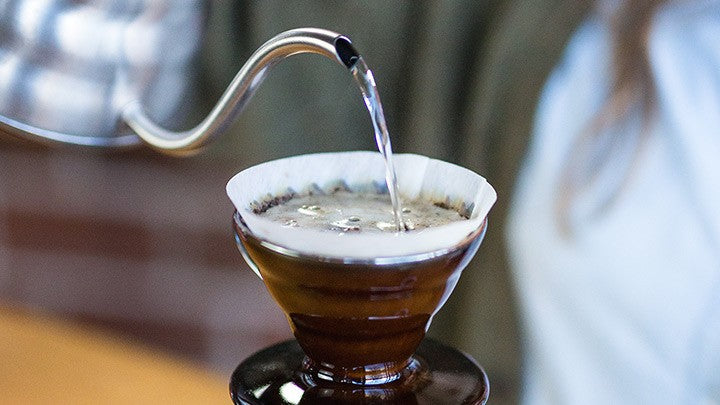Most people who love their coffee go to great lengths to get exquisite beans, a capable burr grinder, and an expensive device for brewing.
For some reason, however, they never seem to give the water a second thought. The truth is that water constitutes more than 98 percent of the final drink. Perhaps we ought to see it as the most crucial ingredient in a cup of coffee.
I had been a coffee geek for years before I realized the importance of water. Once I finally understood the role of water in coffee extraction it changed my brewing for good
Water chemistry can get pretty complicated, so this is my attempt to boil the most important aspects down to some actionable advice, so you can also brew better coffee at home.
Water is more than H2O
Water is water. It’s everywhere in our daily life, and we never give it a second thought. Sure, you can get some fancy mineral water in the supermarket, but that’s just marketing. Right? Well, it probably often is, but there’s also some truth to it. Water is a lot more than just H2O when you study it carefully. It usually contains minerals, salts, and some impurities.
Depending on where you are in the world the water composition will be somewhat different. Rainwater percolates into the underground where it will go through layers of limestone and chalk. This process makes the water harder as it picks up minerals on the way.
You probably never thought about it, but it’s not uncommon that a single liter of water contains enough minerals that it equates to the size of a headache pill.
People who live in areas with much calcium in the water, however, already know this since they have to descale their electric kettle and bathroom tiles regularly.
The science
One of the things that has become apparent in the specialty coffee community in recent years is that water isn’t just an ingredient in coffee.
The water – or rather the minerals in it – also acts as an extraction agent that pulls the delicious compounds from the coffee beans and into the cup.
The British barista champion Maxwell Colonna-Dashwood and chemist Christopher Hendon did a research project a few years ago that shed some light on the process.
It turns out that magnesium and calcium are the two most important minerals when it comes to coffee extraction. Especially, magnesium is vital if you want to be able to taste the fruity and lively flavors of light roasted coffees.
It could be tempting to think that more minerals equate better coffee but that isn’t the case, argued Hendon and Colonna-Dashwood in their research paper. Instead, there is a sweet spot where minerals and a buffer are balanced to create the ideal water.
When their book, ‘Water for Coffee,’ was published it made headlines within the specialty coffee community.
However, beer brewers had been aware of the importance of water for centuries. In fact, that’s the reason why beers from London, Prague, and Brussels historically had their own style.
Test your water
So how do we boil all this science down to some actionable advice? Well, luckily you don’t have to study water chemistry to start making better coffee.
One thing you can do today is to stop using hard water for brewing coffee if you live in an affected area. You should be able to obtain this information from your local water station easily. Otherwise, you can buy a cheap TDS pen online (I recommend the Xiaomi brand) and measure it yourself. Unfortunately, the majority of Americans have hard water in their taps.
To find out if a certain water is right, you can check the label and see what the amount of total dissolved solids (TDS) is. If it’s between 50 and 150, the water will most likely be great.
However, if the water has a TDS score from 0 to 20 – which is typically the case with reverse osmosis water – it will not be ideal for brewing. The flavor compounds of the beans need some minerals to adhere to in order to be extracted properly. The taste will be astringent and somehow artificial.
Soft water is better.
What if you have soft water in the area where you live? Then you’re one of the lucky ones.
You can probably get away with using a filter pitcher such as Brita. If you can find specific cartridges that convert calcium to magnesium, you should go for that.
It may sound like a lot of trouble to go through, but using the right kind of water makes a huge difference when brewing manually. If you’re still unsure whether it’s worth the effort, I’d encourage you to test it at home. Just brew a cup of coffee with tap water and bottled water and taste them next to each other. The difference should be obvious.
If you already care about buying freshly roasted coffee and have the right equipment, this last step will take your cup from good to great.
About the Author: Asser Christensen is a Danish journalist. These days he mostly writes about coffee. He is a certified Q Arabica Grader with the Coffee Quality Institute. His work has been published in a range of newspapers and magazines in his native country, Denmark, as well as internationally. You can follow his coffee journey at his personal blog: ‘The Coffee Chronicler.’ If you already care about buying freshly roasted coffee and have the right equipment, this last step will take your cup from good to great.



